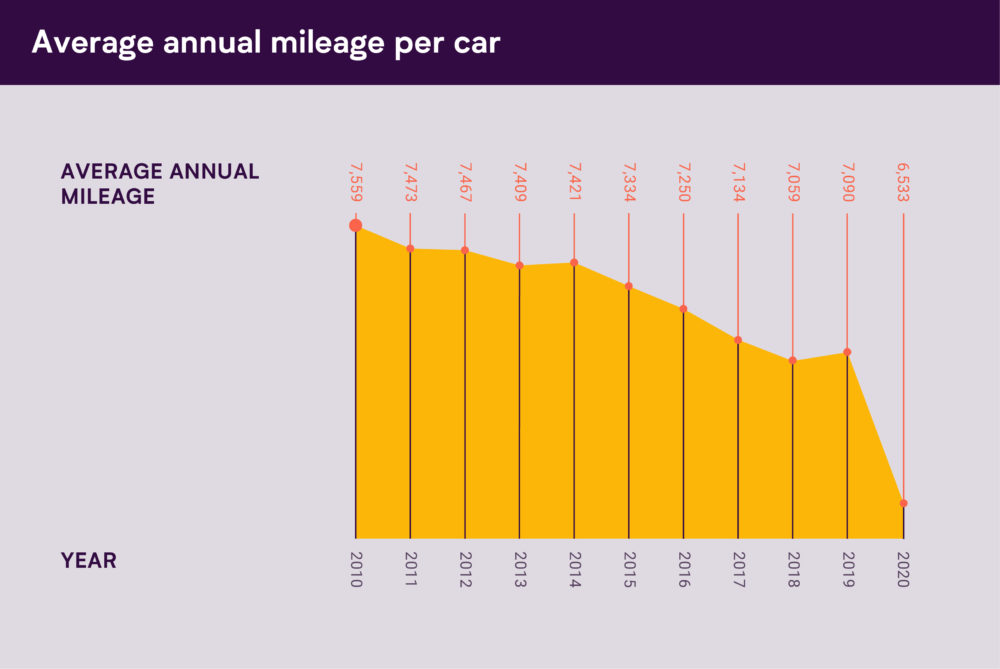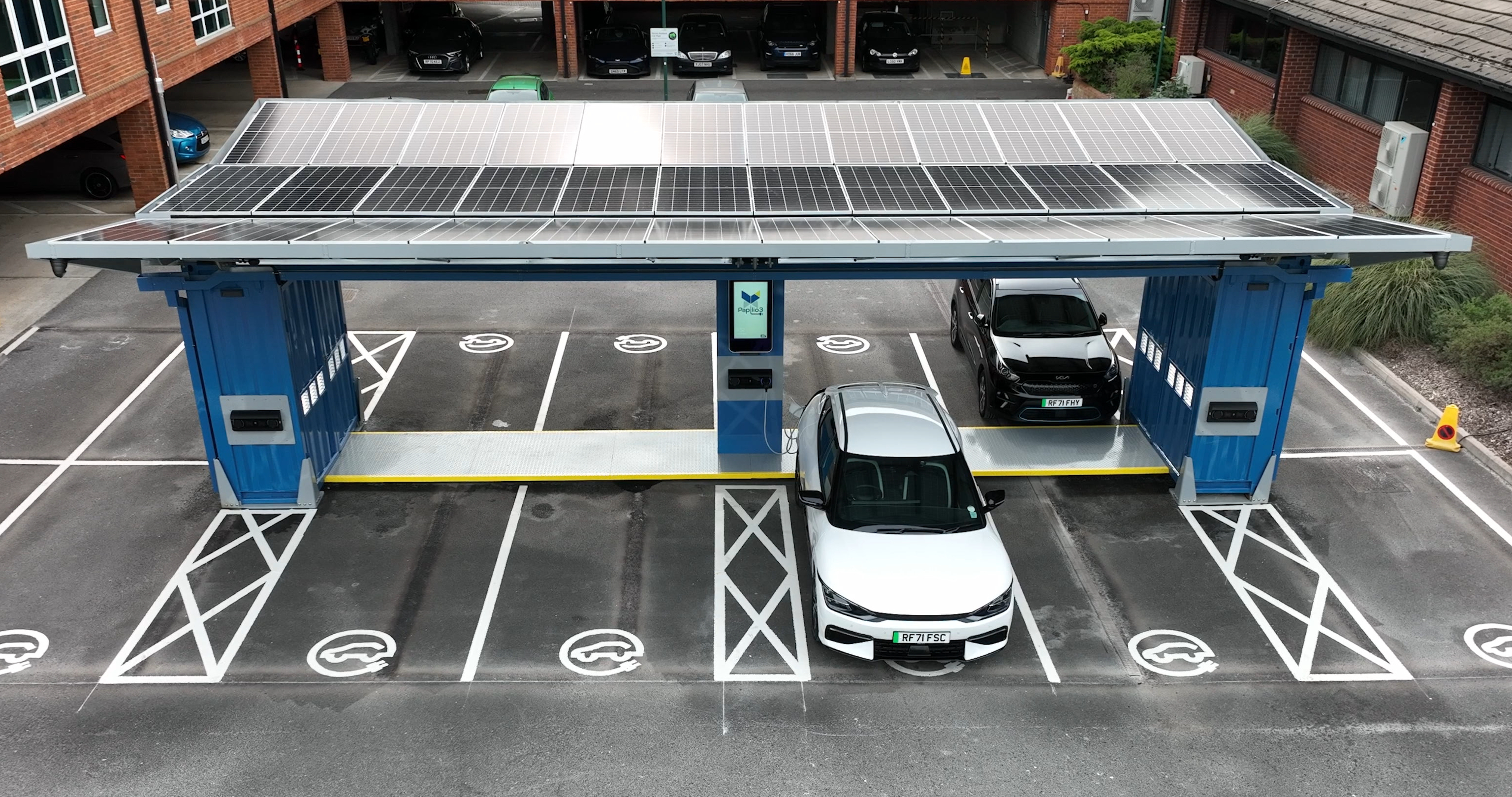The Future of Power Generation in Great Britain
Discussion
Max_Torque said:
As our purchasing becomes ever more "online" and last mile deliveries increase in capability and speed, as our jobs become every more "Online" and more and more people WFH, why would anyone drive more? And as costs of motoring increase, which they surely will (the green "revolution" is an expensive one) people will find other ways to do things. Private car mileage has fallen steadily since it's peak a decade or so ago:

For things like Uber, to Amazon, to Just eat, and any number of other online service, we increasingly get something brought to us rather than drive to it.
I see no reason for that trend to change?
(personally i also see the ownership of a private car also falling significantly. Not in the near term, but within a decade imo)
Is that average per person or per car ?
For things like Uber, to Amazon, to Just eat, and any number of other online service, we increasingly get something brought to us rather than drive to it.
I see no reason for that trend to change?
(personally i also see the ownership of a private car also falling significantly. Not in the near term, but within a decade imo)
Talksteer said:
Gary C said:
Cobnapint said:
PushedDover said:
Firstly do’ya’thunk that of overnight became more expensive, customers would pivot to using day time and nullifying your claim?
No, because for most people with EVs (which will be most of 'us' in about 20 years time), the only time they'll get to charge up will be at night when they get home from work.Of course, the number of charging points in company car parks will increase and charging at work will be possible at many places, but you'll pay for it.
I'm not suggesting that overnight will become more expensive than day time. I'm saying that cheap off-peak, overnight, E7 etc will be a thing of the past as night demand rockets.
However, replacing gas heating with electric would/will be interesting.
Peak heat demand in the UK is about 170GW,
https://www.sciencedirect.com/science/article/pii/...
However the caveats are that before you fit a heat pump you need to improve the insulation of the building. The increase in insulation between a UK average category E and a B is around a factor of two ergo we can probably halve the heating requirement. Assuming a COP of about 3.5 that would mean a peak electricity demand of 24GW, with a ramp rate of around 8GW/h.
That is obviously a lot but not unfeasible, I suspect it will also have a degree of diurnal peakiness about it meaning that we can do something with either batteries or storage heaters.
Max_Torque said:
As our purchasing becomes ever more "online" and last mile deliveries increase in capability and speed, as our jobs become every more "Online" and more and more people WFH, why would anyone drive more? And as costs of motoring increase, which they surely will (the green "revolution" is an expensive one) people will find other ways to do things. Private car mileage has fallen steadily since it's peak a decade or so ago:

That is miles per car. As families go from a one car to a two car household miles per car will obviously decrease. The figure to watch is overall vehicle miles up to 2019 (pre lockdown). They were increasing steadily.
I would guess that online deliveries are a factor to increase miles not decrease them. Hence the light van miles increase is more than other categories.

https://assets.publishing.service.gov.uk/governmen...
PS it's helpfull to provided a source for graphs.
Quoted graph appears to be from
https://www.bymiles.co.uk/insure/magazine/mot-data...
Edited by irc on Sunday 29th May 11:08
Edited by irc on Sunday 29th May 11:10
Edited by irc on Sunday 29th May 11:11
irc said:
.
I would guess that online deliveries are a factor to increase miles not decrease them. Hence the light van miles increase is more than other categories.
Well no, because one van delivers to several homes on a route, as opposed to multiple homes doing return journeys from a single point.I would guess that online deliveries are a factor to increase miles not decrease them. Hence the light van miles increase is more than other categories.
Edited by irc on Sunday 29th May 11:11
Evanivitch said:
Well no, because one van delivers to several homes on a route, as opposed to multiple homes doing return journeys from a single point.
I live somewhere reasonably suburban. I've watched an Amazon van park and the driver make deliveries to three customers on foot, as they were too close for it to be worth driving between them.xeny said:
I live somewhere reasonably suburban. I've watched an Amazon van park and the driver make deliveries to three customers on foot, as they were too close for it to be worth driving between them.
When Royal Mail goes fully electric it'll make a huge difference. 10+ yr old diesel vans left idling on streets all day, doing about 30 miles a day.Evanivitch said:
Well no, because one van delivers to several homes on a route, as opposed to multiple homes doing return journeys from a single point.
True. Though the ease of clicking means purchases which would previously been made as part of another journey, to or from work perhaps, are now seperate deliveries. For example in the last week our Amazon courier has made seperate visits to us to deliver a bike gear cable and a pair of gloves.Certainly the increased van miles up to 2019 were not matched by a decrease in car miles.
Evanivitch said:
irc said:
.
I would guess that online deliveries are a factor to increase miles not decrease them. Hence the light van miles increase is more than other categories.
Well no, because one van delivers to several homes on a route, as opposed to multiple homes doing return journeys from a single point.I would guess that online deliveries are a factor to increase miles not decrease them. Hence the light van miles increase is more than other categories.
Edited by irc on Sunday 29th May 11:11
 t off Amazon/eBay that I certainly wouldn’t make a dedicated trip into town for, on a weekly basis at least, and I suspect I’m not alone. The data posted by IRC seems to support what he said.
t off Amazon/eBay that I certainly wouldn’t make a dedicated trip into town for, on a weekly basis at least, and I suspect I’m not alone. The data posted by IRC seems to support what he said.Max_Torque said:
5) Many large scale "fuel station" providers are now coming to the BEV charging game with battery and solar / wind backed charging hubs, which can eb installed with a much lower direct impact on the local grid. These aren't of course the complete solution (as the UK isn't sunny enough most of the time) but they will help to take the peak demand off at critical times, for example this containerised, portable, battery backed solar "filling station":

Those must be some amazing spec solar panels if 36 of them can support 12 charging bays, while mounted at a far from optimal angle inside a courtyard.
Unless they're only there as a bit of decoration making only a token contribution?
Talksteer said:
That is obviously a lot but not unfeasible, I suspect it will also have a degree of diurnal peakiness about it meaning that we can do something with either batteries or storage heaters.
It is possible to flatten the peak with heat stores, although how you would work out the point at which the ROI makes sense IDK.hidetheelephants said:
Talksteer said:
That is obviously a lot but not unfeasible, I suspect it will also have a degree of diurnal peakiness about it meaning that we can do something with either batteries or storage heaters.
It is possible to flatten the peak with heat stores, although how you would work out the point at which the ROI makes sense IDK.Evanivitch said:
hidetheelephants said:
Talksteer said:
That is obviously a lot but not unfeasible, I suspect it will also have a degree of diurnal peakiness about it meaning that we can do something with either batteries or storage heaters.
It is possible to flatten the peak with heat stores, although how you would work out the point at which the ROI makes sense IDK.Talksteer said:
Given that you want only low grade heat out of the storage system you can store it quite cheaply. A 1000l hot water tank which you applied 40 degrees of warming to via a heat pump is storing 46 KWh of energy, which took about 10-15KWh of electricity to create. That tank will be easily cheaper than a power wall.
Why would you want only low grade heat? Mixer taps are available...Similarly, a 1000l hot water tank is huge. Most homes won't want or have space for that. Most people will instead have upto a 350l unvented cylinder, which is still substantially larger than a combi boiler.
xeny said:
Talksteer said:
A 1000l hot water tank which you applied 40 degrees of warming to via a heat pump is storing 46 KWh of energy, which took about 10-15KWh of electricity to create
You're saying 10-15kWh of electricity to create 46kWh of energy?Evanivitch said:
Talksteer said:
Given that you want only low grade heat out of the storage system you can store it quite cheaply. A 1000l hot water tank which you applied 40 degrees of warming to via a heat pump is storing 46 KWh of energy, which took about 10-15KWh of electricity to create. That tank will be easily cheaper than a power wall.
Why would you want only low grade heat? Mixer taps are available...Similarly, a 1000l hot water tank is huge. Most homes won't want or have space for that. Most people will instead have upto a 350l unvented cylinder, which is still substantially larger than a combi boiler.
A 1000l tank is eminently possible to install and support in a new build especially if you put it on the ground floor and use a header tank and a pump.
Gassing Station | News, Politics & Economics | Top of Page | What's New | My Stuff



 Never mind the size of a 1000l tank, if it can't be placed on the ground the structure needed to carry it will be a pain in the bum.
Never mind the size of a 1000l tank, if it can't be placed on the ground the structure needed to carry it will be a pain in the bum.
